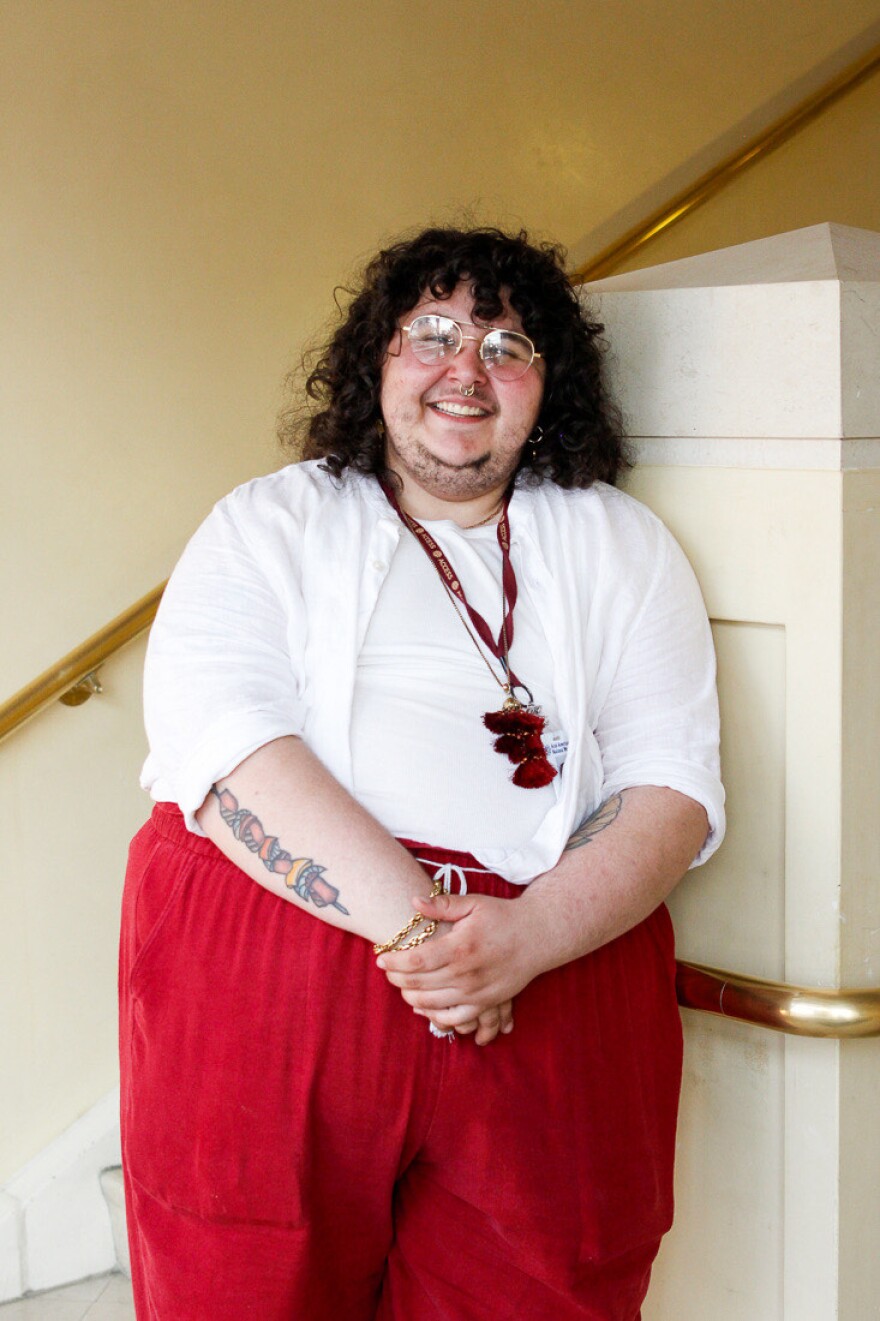The Arab American National Museum recently celebrated the grand opening of a lush new installation: a rooftop garden full of donated herbs, flowers, and vegetables.

The name of the space, “Al Hadiqa,” translates in English to “The Garden.” Its inception began in an email thread, said Dean Nasreddine, curatorial specialist for the museum.
“Apparently the museum had had the rooftop done up and would have meetings out there. There was a pergola out there, and then over time it just fell out of use,” Nasreddine said. “And so I think it happened to be like, you'd walk by it every day in the offices and think, ‘Wouldn't it be so cool if we had something out there?’”
Founded in 2005, the museum was the first in the world dedicated to preserving Arab-American history. The garden is part of the mission. Each plant was donated by a member of the local Arab American community.
As a dedicated green space, Al Hadiqa has a vast array of plants growing. You can find anything from radishes, to polka dot begonias, to mint, to Aleppo peppers. Museum staff, local volunteers, and the team at Garden Juju Collective, a greenspace design consultancy, helped bring this vision to life.
“A lot of times, when you build a garden, you don’t have 200 people go through it in the same week,” said Bridget O’Brien, one of the co-founders of Garden Juju Collective. “It’s a pleasure in that way to have that instant gratification of that experience of people interacting with something you spent months and months designing, and creating, and working with community to develop.”
In addition to these plants, visitors will find various plaques around the garden with photos and introductions to the individuals who offered up their seeds and cuttings. there are QR codes on each plant donor’s plaque that visitors can scan to hear each of their stories in their own voices.

Shatha Najim, a community historian for the museum, recorded oral histories with each of the ten plant donors.
“Creating this garden, we knew that we wanted to make a garden that is accessible and made from the local community,” Najim said. “So we wanted to focus on telling a narrative. And you know, plants in general are very meaningful to people, and the practice of gardening and farming stems a lot from the Middle East and, you know, fertile land.”

There is a wealth of experiences and backgrounds among these donors. They span age groups and genders, while also coming from different parts of the Middle East at various times; some were born in the U.S., and others more recently immigrated to the States. With these differences, all the donors share a passion for gardening and for the role it plays in their cultural heritages.
Charlotte Karem Albrecht started gardening when she was in graduate school. The practice became a “radical antidote” to the stresses of graduate school.
“I lived in an area of south Minneapolis that had tons of community gardens, and there was one nearby,” she recounted. “I had a really large plot with other people, and there were other people in the garden that I knew, and we just had a great connection.”
Some participants, like Sarmad Jabra, an Iraqi immigrant, expressed that gardening is a key element of cultural preservation. Today, in his Detroit home, Jabra grows veggies like Palestinian cucumbers, Turkish eggplant, and Iraqi tomatoes.
“I see my [Arab American identity] as a continuation – things that we took with us as we came overseas, he said. “Being able to grow the tomatoes that grow in the country that I left makes me feel like I have part of that with me still. It’s an intimacy, I think.”
For some, part of this cultural preservation is religious. Nissrine Hussein, who grew up in Beirut during the civil war, recounted gardening with her late grandmother before immigrating to the US.
“It brings tears to my eyes when I think of her, especially when she taught me how to worship Allah through plants,” Hussein said. “Every time I eat a cucumber from that yard, I remember our village.”
Any plants that won’t survive on the roof will be given a new home less than ten minutes away at Hope House Clubhouse. The organization offers community and enrichment for adults with mental illness. Both the museum and Hope House are institutions of ACCESS.

Nasreddine reflected on all that led up to the opening of the garden.
“For us to have the opportunity to work with these folks, to hear their stories and to hold them and in the same way that they, you know, treat their plants as sacred, we're treating their story as sacred,” said Nasreddine. “We're trying to uplift them in such a way that they feel proud to have donated it to us, and that these plants and these stories can maintain and continue to propagate over time. And we can still build the collection that way, too.”
To learn more about Al Hadiqa and the stories it holds, listen to the Stateside Podcast.
[Get Stateside on your phone: subscribe on Apple Podcasts, Google Podcasts, or Spotify today.]
GUESTS ON TODAY'S SHOW:
- Shatha Najim, community historian at the Arab American National Museum
Dean Nasreddine, curatorial specialist at the Arab American National Museum
Oral history recordings of Charlotte Karem Albrecht, Sarmad Jabra, Nissrine Hussein, and Tariq Luthan were used with permission from the Arab American National Museum.










